ゼロカーボン×デジタル:ポストコロナ時代の都市の脱炭素化 ZeroCarbon x Digital: Urban Decarbonization in the post-Covid-19 era
- 日程:2020 年 12 月 14 日(月)~15 日(火)
- 開催方法:オンライン開催 (Zoom 使用)
- 言語:12 月 14 日(月):日本語/12 月 15 日(火):英語
- 主催:グローバル・カーボン・プロジェクト(GCP)つくば国際オフィス、フューチャー・アース日本ハブ、広島大学、アジア太平洋地球変動研究ネットワーク(APN)
- 開催案内:https://www.nies.go.jp/event/2020/20201109/20201109-1.html
- Date: Mon., Dec. 14- Tue., Dec. 15, 2020
- Type of conference: Online Conference (Organized with Zoom)
- Language: Japanese on December 14th and English on December 15th
- Organizers: Global Carbon Project-Tsukuba International Office, Future Earth Hub Japan, Hiroshima University, Asia-Pacific Network for Global Change Research (APN)
- Workshop announcement: https://www.nies.go.jp/event/20201120-e.html
Mon, December 14, 2020【Language: Japanese】
ゼロカーボンシティに向けた研究と政策(座長:山形) Research & Policies towards Zero Carbon City (Chair: Y Yamagata)
開会挨拶、フューチャー・アースからのメッセージ Opening remark and message from Future Earth
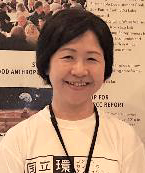
- 春日文子(フューチャー・アース国際事務局日本ハブ事務局長、国立環境研究所特任フェロー)
- Fumiko Kasuga, Global Hub Director - Japan, Future Earth and Senior Fellow,National Institute for Environmental Studies (NIES)
1.5℃の実現に向けた京都市の挑戦 Kyoto city’s challenge to realize 1.5℃
2019 年 5 月に開催した「IPCC 第 49 回総会京都市開催記念シンポジウム」において、京都市長は、環境大臣らとともに,「1.5℃を目指す京都アピール」を発出し、全国で初めて「2050 年 CO2 排出量正味ゼロ」を目指すことを宣言しました。ゼロカーボンの実現に向けて、京都市地球温暖化対策条例(通称:京都市ゼロカーボン条例)の改定プロセスをはじめ、京都市が進める具体的な行動を紹介します。
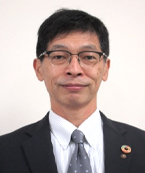
- 猪田和宏(京都市 地球環境・エネルギー担当局長)
- Kazuhiro Inoda, Supervising Director of Global Environment and Energy, City of Kyoto, Kyoto City
脱炭素に向けた国内外の自治体の動向-ゼロカーボン自治体と Race to Zero
国連気候変動に関する政府間パネル(IPCC)の特別報告書「1.5°C の地球温暖化」が 2018 年 10 月に発行され、世界では 2050 年までに脱炭素化する機運が高まりました。この流れをいち早く捉え日本でも京都市などが先頭に立ちゼロカーボンを表明しましたが、国内を含む海外でも宣言する自治体が相次いでおり、今や不可逆的な動きとなっています。アントニオ・グテーレス 国連事務総長は 12 月 2 日のステートメントで、2021 年の国連の中心的な目的として、カーボンニュートラルのための真にグローバルな連合を構築することをあげました。こうした世界の動きと連動する国内外の自治体の取組みをご紹介します。
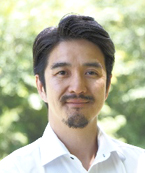
- 内田東吾(イクレイ日本)
- Togo Uchida, Director, ICLEI Japan
都市の脱炭素化のための挑戦(座長:小端) Challenges for urban decarbonization (Chair: T Kobashi)
アカデミックエンタープライズが駆動するサステイナブルユニバーシティータウン構想:広島大学と東広島市の事例 Sustainable University Town Initiative driven by Academic Enterprises: A case study of Hiroshima University and Higashi-Hiroshima City
広島大学が東広島市と共同で取り組む持続可能な都市づくりについて、背景と経緯、構想概要、実施体制、今後の展望を説明します。多くの地方都市が共通に抱える、少子高齢化・人口流出・過疎化による負のスパイラルを反転させるため、大学と自治体との今までにないレベルの連携モデルを目指します。そこでは、大学が核となり、グローバルな頭脳循環に参加することによって世界の起業家が地域の社会課題解決に資するビジネスを次々と展開していく街づくりを目指します。低炭素社会は、そうした目標とする社会に求められる一つの側面です。

- 金子慎治(広島大学副学長(グローバル化推進担当))
- Shinji Kaneko, Vice-President for Global Initiatives, Hiroshima University
PV と EV を用いた日本の都市の脱炭素化の可能性 Decarbonization of Japanese cities using energy sharing systems (PV+EV)
日本政府は、2050 年に CO2排出ネットゼロを目指すことを発表しました。しかし、それを実現するための道筋は明らかになっていません。そこで、本研究では、日本の9つの主要都市(東京都区部、岡山市、広島市、川崎市、仙台市、新潟市、札幌市、郡山市、京都市)において PV と EV を用いて都市の脱炭素化を行った際の経済性と CO2排出ポテンシャルの分析を行いました。その結果、都市の 70%の全屋根面積を PV に用い、自動車を EV としそのバッテリの半分の容量を、PV のフレキシビリティーとして用いることで、都市の 53-95 %の電力需要を賄うことができることが分かりました。また、26-41%の電力とガソリン使用に伴う費用の節約につながります。今後、分散型電源の開発と P2P による都市内での自家消費を最大化することが重要になります。
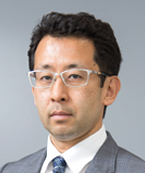
- 小端拓郎(国立環境研究所 地球環境研究センター 特別研究員/GCP つくば国際オフィス事務局長代理)
- Takuro Kobashi, Research Associate, National Institute for Environmental Studies (NIES)/ Acting Director, GCP Tsukuba Office
デジタル社会とゼロカーボンシティ:アフターコロナ時代スマート・ライフスタイルと都市 Digital society and zero carbon cities: A ‘smart lifestyle’ for the redesign of the ‘after corona’ urban form
都市における炭素排出を 2050 年までに実質ゼロにする脱炭素化を宣言したゼロカーボンシティは、現在 100 以上の自治体に拡大し全人口の半分以上の規模に至っており、これらの自治体の具体的な脱炭素化計画を策定支援することが喫緊の課題となっています。一方、感染症拡大防止対策を行いながら経済活動を回復させる際に、本格的な脱炭素化対策を同時に実施してグリーンリカバリー(GR)を達成する政策に国際的な注目が集まっています。そこで、効果的かつ持続可能な GR シナリオを検討し、シナリオ毎の炭素排出量や持続可能性を総合的に評価して、計画を策定することが重要となってきます。特にこの際、アフターコロナにおける社会変革の原動力となるSociety 5.0 関連のデジタル技術を、ゼロカーボンシティの実現に向けた対策としても有効活用する新たな知恵が求められています。本発表では、自治体におけるデジタル社会の実現と、アフターコロナ時代のスマート・ライフスタイルでの働き方、住まい方、モビリティ利用に関する人々の行動変容を GR シナリオとして分析し、定量的に評価・可視化する都市炭素マッピングについて紹介します。
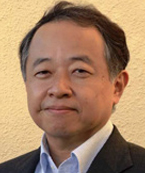
- 山形与志樹(国立環境研究所 地球環境研究センター 主席研究員/GCP つくば国際オフィス代表)
- Yoshiki Yamagata, Head of GCP Tsukuba Office / Principal Researcher, National Institute for Environmental Studies (NIES)
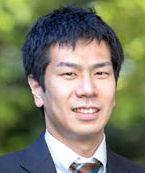
- 吉田崇紘(国立環境研究所 地球環境研究センター 特別研究員/GCP つくば国際オフィス協力研究員)
- Takahiro Yoshida, Research Associate, NIES / Collaborative Researcher, GCP Tsukuba Office
ゼロカーボンシティと脱炭素イノベーション Zero carbon cities and innovation towards decarbonization
脱炭素社会に向けてゼロカーボンシティや地域循環共生圏を実現していくことが非常に需要になっている中、環境省におけるゼロカーボンシティ支援の取組について紹介します。その中でも、ゼロカーボンシティや地域循環共生圏創造に向けた政策決定に活用可能な衛星データ等を活用した低炭素マッピングの手法など脱炭素を実現するための技術、社会イノベーションについて述べます。

- 中島恵理(環境省地球環境局総務課 脱炭素イノベーション研究調査室長)
- Eri Nakajima, Director, Office of Global Environment and Decarbonizing Innovation Research, Ministry of the Environment of Japan
環境省のプロジェクト提案に関するディスカッション(座長:山形、小端)・質疑応答 Discussions regarding MOE project proposals (Chair: Yoshiki Yamagata & Takuro Kobashi) and Interactive Q&A
京都市におけるゼロ排出への道筋(座長:内藤) Pathways toward zero emission in Kyoto (Chair: K. Naito)
ネットゼロ排出に向けた京都市の道筋 Kyoto’s pathway toward net-zero emission
2040 年まであと残すところ 20 年、2050 年までは 30 年しか残されていません。京都市のゼロエミッションを実現するにはこの短い期間で市民生活・活動を維持・発展させながらエネルギ-需給を基本的に変えていく必要があります。基本的なインフラやエネルギ-施設は、今作ったものは 30 年後まで使われることになるので、直ぐに方向を示す必要があります。京都市循環共生圏検討会の議論を踏まえつつ、これを如何にしたら実現できるのか、その道筋を考えるうえでポイントになりそうなメカニズムをいくつか示しつつ、道筋討議の材料を提供します。
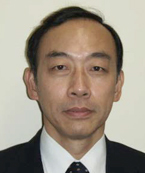
- 内藤克彦(京都大学大学院 経済学研究科 特任教授)
- Katsuhiko Naito, Professor, Graduate School of economics, Kyoto university
Future Design Future Design
気候変動や資源エネルギー問題、インフラの維持管理問題や財政など持続可能性を脅かす様々な課題が顕在化しています。将来世代の利益を適切に取り込むことができない既存の社会システム下では、世代を超えるこれらの長期的課題に適切に対処していくことが困難であり、新たな社会の仕組みが求められています。これら長期的な課題に対処し、持続可能な自然環境と人間社会を将来世代に引き継ぐための社会の仕組みのデザインとその実践が「フューチャー・デザイン」です。本講演では、2019 年度に脱炭素社会への転換をテーマとして、京都市職員の参加の下で実践されたフューチャー・デザインなど、自治体での応用実践の事例を紹介します。そして、持続可能な未来を導くための社会の仕組みのあり方について皆さんと考える機会としたいと思います。
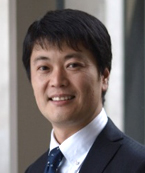
- 原圭史郎(大阪大学大学院工学研究科 教授)
- Keishiro Hara, Professor, Graduate School of Engineering, Osaka University
脱炭素に向けた市民・パートナーシップの活動 Citizen and partnership actions for decarbonization
気候の危機回避と、パリ協定の目標達成に向けて、世界は脱炭素・再エネ 100%へ大きく転換しつつあります。自治体による 2050 年脱炭素に向けた宣言や、RE100・RE Actions への参加企業も増加しています。それらの実現のためには、抜本的な政策・制度の転換、効果的な政策導入と着実な地域活動の広がりが求められています。市民・研究機関・企業・行政等によるパートナーシップの役割も益々大きくなっていくことが期待されています。今回は、京都議定書採択の地、京都で取り組まれてきた市民・パートナーシップの温暖化防止活動について振り返ります。その上で、脱炭素社会の実現のための今後の方向性・活動のあり方や課題・展望について共有します。
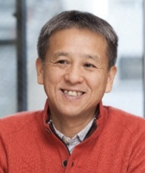
- 田浦健朗(気候ネットワーク 事務局長)
- Kenro Taura, Executive Director and Board Member, Kiko Network
パネルディスカッション「ステークホルダーと共に考える脱炭素化に向けた都市計画」 Panel discussion on “urban planning toward decarbonization with stakeholders”
- 座長:山形、小端(国立環境研究所)、内藤(京都大学)
- Co-chairs: Y. Yamagata, T. Kobashi (NIES), K. Naito (Kyoto univ.)
「中々広がらない日本の地域電力」
- 内藤克彦(京都大学大学院 経済学研究科 特任教授)
- Katsuhiko Naito, Professor, Graduate School of economics, Kyoto university
「市民・事業者・行政のパートナーシップでの取組」
京都市における脱温暖化につながる取組として、主に「京(みやこ)のアジェンダ21 フォーラム」によるローカルアジェンダ 21 の推進および環境学習施設「京(みやこ)エコロジーセンター」の事例を中心に、当協会が行っている市民・事業者・行政のパートナーシップでの取組について紹介します。
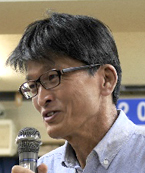
- 井上和彦(公益財団法人京都市環境保全活動推進協会 アジェンダ課長)
- Kazuhiko Inoue, Secretary-General, Kyoto Local Agenda 21 Forum, Kyoto Environmental Activities Association
「脱炭素とローカル SDGs 実現に向けた地域新電力の取組」
菅首相によるゼロカーボン宣言から、国内における脱炭素の動きは急速に高まっています。地域新電力は地域脱炭素化のキープレーヤーとなりうる存在ですが、そのためには、まだまだ新しい挑戦が必要です。本報告では、我々が開発を進めてきた地域新電力の卒 FIT 再エネ調達を容易にするための、HP 給湯器を活用したインバランス制御システムの開発状況や、電力以外の地域サービスと組み合わせてローカル SDGs の実践を目指す株式会社能勢・豊能まちづくりの挑戦についてご紹介します。
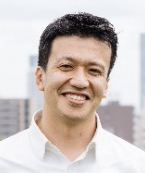
- 榎原友樹(E-konzal 代表取締役)
- Tomoki Ehara, Representative Executive, E-konzal
「東富士における P2P 電力取引実証実験について」
P2P 電力取引は,分散型電源から発生した余剰電力をフレキシブルに近隣間でやり取りする仕組みを指すが,再生可能エネルギーの普及を促す仕組みの一つとして期待されている.本発表では,静岡県東富士エリアにて実在する家庭・車・事業所を用いて実施した P2P 電力取引実証実験(トヨタ・東大・TRENDE の3社が参加)の内容とそこで用いられたホームエージェントの詳細及び検証結果について報告する。
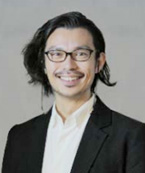
- 武田泰弘(TORENDE 株式会社 テクノロジーディレクター / 東京大学)
- Yasuhiro Takeda, Director of Technology, TORENDE Inc. and The University of Tokyo
「京都から脱炭素社会へ:仏教者による新電力の歩み」
僧侶 4 人で TERA Energy(株)を立ち上げました。私たちは世界中の一人ひとりが大切にされ、それぞれが居心地よく生活できる世界にしたいという想いを持っています。私たちにとって、電気小売事業というビジネスは、この想いを実現していくための一つのツールです。脱炭素社会も達成されればそれでよいというものではありません。人間は弱い存在であり、孤独に耐えることは容易ではありません。お互いのこころを温め合う関係のなかで、安心して生きてゆける(死んでゆける)、そんな関係性が紡げる社会になることを目指し、電力事業に参入しました。弊社は次のことを実現したいと考えています。
- 身近な人を応援する喜びを実感できる寄付つきでんき
- 空気を汚さず、奪い合わず、再エネをつかうでんき
- 価格にとことん納得できる リーズナブルなでんき

- 本多真成(TERA Energy 株式会社 取締役)
- Shinjo Honda, Director, TERA Energy Inc
テーマ:スマートシティのためのデジタル技術と都市計画のリンク Linkages between digital technologies and urban planning for smart cities
- 経験から得た教訓 / Lessons learned
- 地方自治体のニーズと優先順位 / Needs and priorities of local authorities
- 地域の取り組みの拡大 / Upscaling local initiatives
- 課題と機会 / Challenges and opportunities
- コロナ後の都市の新しい日常の影響(都市形態など)/ Impact of post-COVIT-19 new normal for cities (urban forms etc.)
京都循環共生圏事業検討会(関係者のみ) Kyoto decentralized energy system project meeting (closed meeting)
#Japan Time (GMT+9)
Integrating renewables with urban energy systems
(Chair: T. Kobashi, NIES)
Introduction and aims/objectives for the session
Takuro Kobashi, NIES
Invited talk: Urban decarbonization and social justice
Clean energy technologies were long thought to be rural and suburban resources to be fed to urban centers. Several new trends are changing that situation. First the low cost of solar power, and materials science advances in thin-film and transparent solar cells have made on-site generation for better tailored to urban settings. Second, the rapid innovation in energy storage - both for buildings and vehicles -- mean that locally generated and remote power brought in by the transmission system -- can now be available '24/7'. Finally, a focus on the energy needs of minorites, disadvantaged communities, and low-income communities can all be far better served for power and transportation. Indeed, without a focus on low-income communities the social benefits of clean energy are being wasted.

- Dan Kammen, Professor and Director of Renewable and Appropriate Energy Laboratory (RAEL), University of California, Berkeley
Designing resilient district energy systems under uncertainty
The need to design resilient energy systems becomes ever more apparent as we continue to decarbonise across all sectors of society. Increasingly, modelling efforts focus on improving system resilience to stochastic variables for which data is increasingly abundant, such as weather and demand. However, we still fail to consider how supposedly “resilient” system designs will handle the realisation of uncertainty during operation, including exposure to unexpected shocks like grid failure. In this talk, I will present an example of embodying and quantifying resilience in district energy system design, and discuss the challenges that modellers still face in understanding and mitigating against uncertainty.

- Bryn Pickering, Researcher, Department of Environmental Systems Science, Eidgenossische Technische Hochschule Zurich (ETH Zurich)
Energy modeling with renewables from a local- to national-scale for decarbonization in Japan
Japan has faced the rapid penetration of solar PV, and specific power service areas actually experience technical difficulty in integrating massive PV into the power grids. For maximization of renewable in energy system, energy planning needs to consider cost, decarbonization and resilience. This presentation discusses desirable power systems and institutions to maximize renewable energy, based on local- and national-scale energy modelling approach and analysis.
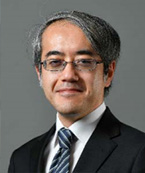
- Ryoichi Komiyama, Associate Professor, Department of Nuclear Engineering and Management, University of Tokyo
Prospects of blockchain: Still looking for a problem to solve
Energy is undergoing decarbonization, decentralization, and digitalization.Electricity markets are seeing an increase in distributed energy resources. The complexity that parallels this decentralization has led to a need of improved coordination through digital technologies, with blockchain being a key emerging technology. Blockchain is a digital distributed ledger which has also been referred to as the Internet of Value. It has been used in numerous Proof-of-Concept (PoC) applications such as peer-to-peer power-trading. However, such PoCs still face a series of economic, social, and institutional challenges. This talk will introduce opportunities and key challenges of blockchain in the power sector.

- Amanda Ahl, Digital Industry Analyst, BloombergNEF
P2P energy exchange platform for introducing renewables utilizing EVs and stationary batteries
When we imagine a coming super city, it should provide many services with IoT devices. In this research, P2P energy exchange platform which is demonstrated in Higashifuji area is introduced as an example. Through blockchain based service platform, IoT devices, such as Electrical Vehicles, Stationary batteries, Renewable generators, business office agents, automatically co-operate and trade their energy based on each economic incentive. Such machine-to-machine service platform may be a good tool for future resource efficient city design.
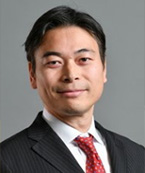
- Kenji Tanaka, Associate Professor, Department of Technology for Innovation, Graduate School of Engineering, The University of Tokyo
Discussions on the issues of urban decarbonization using renewable energy
- Chair: Takuro Kobashi, NIES with presenters
New urban planning approaches for designing future zero carbon cities
(Chair: Y. Yamagata, NIES)
Data-driven urban systems design
The ways how human perceives cities are now both physical and digital.Impacts of mobile devices, the internet of things and pervasive computing to human senses in urban environment are to be further explored. The research integrates physical, performance and experiential modeling to explore how emerging technologies fundamentally change the way human perceives urban environment, and how Urban Systems Design (USD) shapes smart urban environment. It is structured by three components: 1) A design experiment to produce alternative urban form scenarios; 2) A performance modeling to derive properties of urban systems; 3) A design decision platform using digital twin to visualize design and performance outcomes.
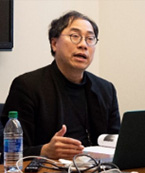
- Perry Yang, Associate Professor and Director of Eco Urban Lab, School of City and Regional Planning + School of Architecture, College of Design, Georgia Institute of Technology
Facilitating Data-driven Innovation for Sustainable Smart Cities: Opportunities and Challenges for Tackling Climate Change
Smart cities play a crucial role in tackling many issues concerning climate change,ranging from increasing energy efficiency and introducing renewable energy sources to maintaining resilience to extreme weather conditions such as floods and typhoons. In facilitating data-driven innovation for sustainable smart cities, effective collection, sharing and usage of data through collaboration among stakeholders would be critical for while addressing concerns about safety, security and privacy and the balance between open and proprietary data. Policy and institutional arrangements for data governance need to incorporate the ability to learn from real-world use and experience and to improve performance through adaptation.
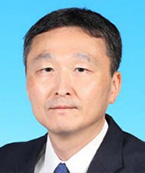
- Masaru Yarime, Associate Professor, Division of Public Policy, The Hong Kong University of Science and Technology; Honorary Associate Professor, Department of Science, Technology, Engineering and Public Policy, University College London; Visiting Associate Professor, Graduate School of Public Policy, The University of Tokyo
Latest developments with decarbonising urban communities in Australia
As Australia leads the world in behind-the-meter PV, households are significantly reducing their electricity consumption while providing renewable energy to the rest of the electricity system. However, as integration problems begin to emerge, new strategies are being deployed to make the most of household PV generation to further decarbonisation. These include community-scale batteries providing virtual energy storage while alleviating grid constraints, systems that integrate with households within a microgrid to increase the use of renewable energy, to larger-scale community energy projects. Decarbonisation in Australia is continuing to develop as simultaneous transitions at the large- and small-scales.
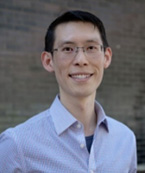
- Kelvin Say, Research Fellow at the Energy Transition Hub, University of Melbourne
Smart City and Urban Planning Challenges
Smart city has become one of the important keywords in urban planning in Japan.While smart city is an attractive vision for both urban planners and smart technology specialists, discussion on how urban visions and urban planning institutions should transform has not been conducted so much. The City Planning Institute of Japan has recently established a Special Committee on Smart City involving academics and practitioners in urban planning, urban development and smart technologies. This presentation presents some of the challenges recognized in the committee including 1)compactness and network, 2)value of real space, 3)relationship between planning and lawless, and 4)governance structure.
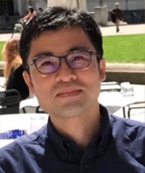
- Akito Murayama, Associate Professor, School of Engineering, The University of Tokyo
Synergies and trade-offs between SDGs and climate actions in cities: Lessons from Japan and the UK
The COVID-19 pandemic has demonstrated the disruptive impacts on economies and livelihoods when human activity transgresses planetary boundaries. The climate emergency poses an even greater threat to a sustainable future for similar reasons. This realisation has led city policymakers to contemplate how they can effectively manage the climate emergency and other COVIDf-like threats to sustainability. This presentation will examine synergies and trade-offs between climate and other sustainable development objectives in relevant city plans and policies in Japan and the United Kingdom.It will also discuss governance arrangements that can align interests to achieve the former and avoid the latter.
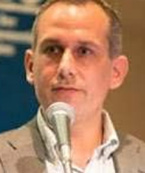
- Eric Zusman, Senior Policy Researcher/Area Leader, Institute for Global Environmental Studies (IGES) and Senior Researcher, NIES
Financing Asian cities through securitization: Spatial evidence for ESG investing
Investors who have signed up to environmental, social, and governance (ESG) investment criteria are estimated to manage above US$45 trillion in assets worldwide. From the huge funding potential, Asian cities would be encouraged to attract ESG investors by promoting some kinds of land marketization and asset securitization along with public policy programs. This talk suggests the importance of developing more systemic asset profiles and appropriate safeguard measures (e.g., evidence-based new land use and urban design codes, green building and smart mobility requirements, portfolio diversification strategies) against global risks,including pandemic threats.
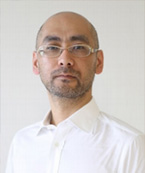
- Jin Murakami, Assistant Professor, Humanities, Arts and Social Sciences (HASS) and Director of Master of Urban Science, Policy and Planning (MUSPP) Program, Singapore University of Technology and Design (SUTD)
Panel discussions on the international project proposals on the post-COVID19 Digital Society & Zero Carbon City
- Co-Chairs: Yoshiki Yamagata, NIES & Eric Zusman, IGES
Next-generation IT based Federation Platform for Smart City
We are now under numerous threats from climate change and covid-19. Our research is based on the idea that urban planning needs the data through simulation and emulation that make use of the power of the digital world. Our cyber-physical system works in smart cities while being realized, enabling performance measurement of city activities. From the perspective of an IT researcher, I would like to introduce the prospects for research on systems useful for adaptation strategies for climate change based on IoT and big data analysis, and human-centric cyber-physical systems.

- Kei Hiroi, Associate Professor, Disaster Prevention Research Institute, Kyoto University
Sustainability with Cities through Research and Innovation
Climate change is projected to increase the intensity and number of extreme events around the world. Cities, with more than half of the world’s population, have the potential to lead the decarbonization efforts. Co-design processes that help to ensure adoption of research and innovation efforts with the potential of creating systemic change will be at the heart of this change.
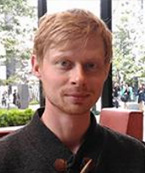
- Giles Sioen, Research Associate, NIES and co-lead, Future Earth Research and Innovation

 GCP Canberra
GCP Canberra